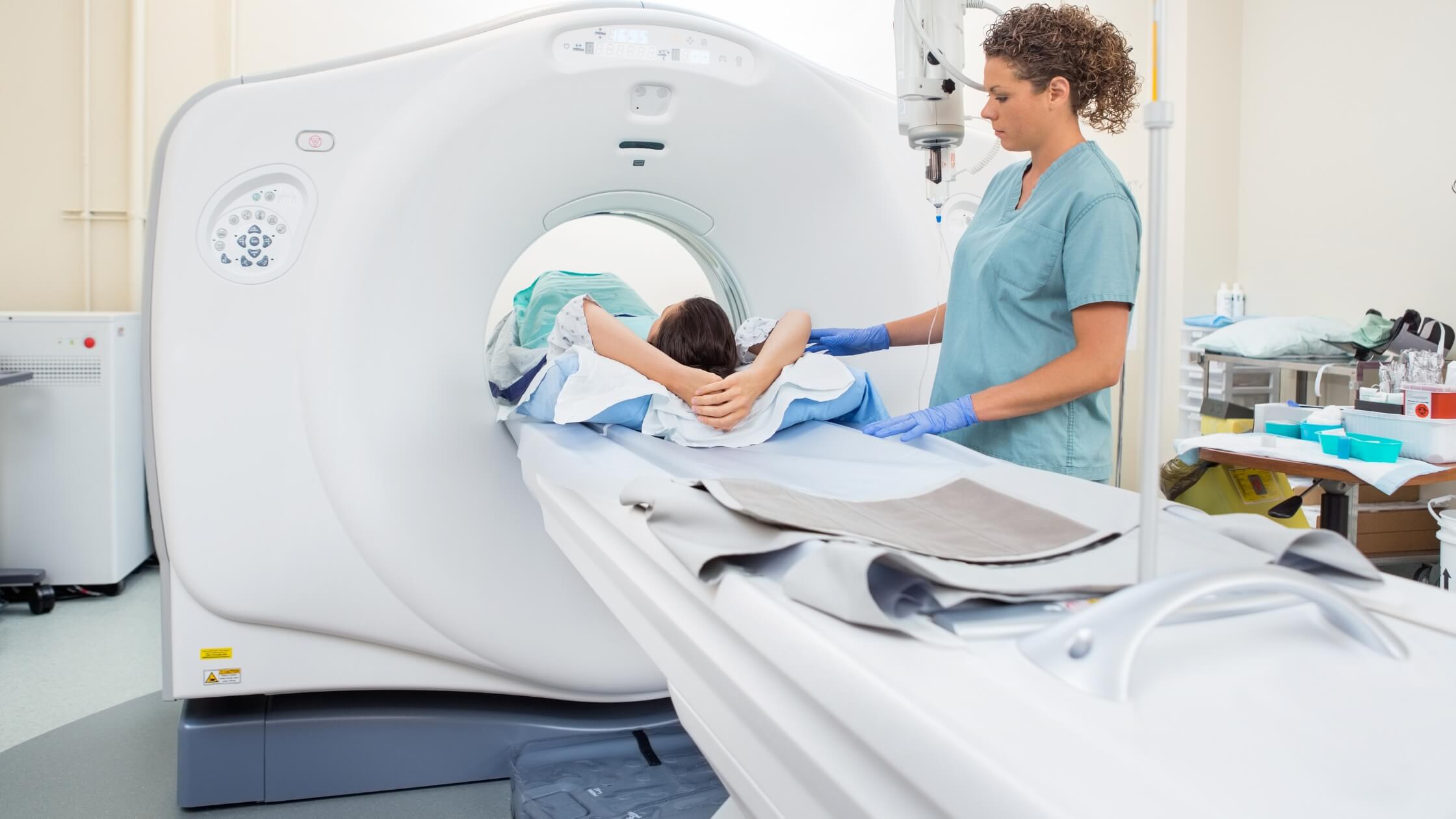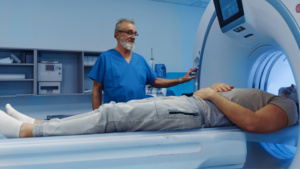Becoming a traveling computer tomography technologist, or travel CT tech, is an exciting career path for all those who want to combine their job of radiological scans with the opportunity to explore new places! As a traveling medical professional, you’ll take your skills on the road as you travel across the country from facility to facility, fulfilling hospital needs for operating CT scanners to diagnose and treat patients. If you’re interested in becoming a travel CT tech, here’s a comprehensive checklist you can reference to help guide you through the process.
Complete All Necessary Education and Certifications
- Find a Radiological Tech Program. The first step you’ll want to take is finding a school that offers a radiological tech program that is accredited by the Joint Review Committee on Education in Radiologic Technology (JRCERT). JCERT is a premier accreditor in medical imaging and the only organization that is recognized by the United States Department of Education and the Council for Higher Education Accreditation. They provide the gold standard when it comes to getting a quality radiological degree and currently have over 700 programs they endorse.
- Earn Your Associate’s Degree. Once you join an accredited program, you’ll work towards earning an associate’s degree in radiology. Most degree programs will offer a multitude of courses that revolve around patient care, biology and anatomy, and radiological equipment. These courses help prepare technologists with a solid foundation to build upon later in their careers.
- Get Certified. After graduation, it’ll be time to get certified by the American Registry of Radiologic Technologists (AART). This certification, which is often required by future employers, also demonstrates your skills and knowledge as a radiographer. It means you’ve met rigorous professional standards and are qualified to be hired in a position for medical imaging, interventional procedures, or radiation therapy.
Gain Working Experience
- Work as a Radiological Technologist. Many CT techs work for a year or two as a generalized radiological technologist before specializing in CT imagery. This helps you to get the lay of hospital systems and a general understanding of how being a registered technologist works.
- Meet the Requirements for a CT Credential. After deciding that you want to specialize as a CT tech, you’ll have to earn an additional CT credential through ARRT. With this you will have to complete an additional 16 hours of structured education either through an accredited program or through CEUs and also complete 125 CT scans under the supervision of another registered technologist.
Develop Essential Skills All Healthcare Travelers Need
- Being able to change on a moments notice or go with the flow is essential for any healthcare worker who is looking to become a traveler. When you become a traveler you become inundated with new technologies and procedures, and you have to be able to adapt from the way you normally do things to the way a different facility wants them done. As you’re developing your skills as a CT tech, focus on remaining adaptable.
- Whether it’s communicating with patients, superiors, or co-workers, it’s important that travel CT techs can express themselves clearly. This helps them develop a level of trust and expertise between themselves and others.
- Attention to Detail. This skill is especially important for a travel CT tech to develop. When delivering high-quality patient care at your assignment, a lot of that will be predicated on how closely you pay attention to your facility’s policies and procedures. Being able to pay attention to detail can help you prevent egregious errors in filing paperwork, or taking patient scans.
Research Travel CT Tech Opportunities
- Understand the Role. Once you’ve gotten at least two years of experience under your belt, you can start exploring travel opportunities. The first step is understanding what being a traveler means and getting all your questions answered. Travelers are healthcare workers who work temporary assignments at understaffed healthcare facilities, providing high-quality care to patients across the country. Most assignments are 13 weeks in length and travelers are contracted to a hospital through an agency.
- Consider Licensing Requirements. When you’ve decided you want to become a traveler, the next step is deciding which city and state you are going to travel to. Every state has its own set of licensing requirements that you will have to fulfill. To learn more about specific state requirements you can check with your recruiter, or visit that states government page for radiography licenses.
- Make a List of Your Priorities. Know going into conversations with agencies and recruiters what your priorities are. Whether it’s location, pay, or company benefits, those things are important to know so that they can find you jobs accordingly.
Apply for Travel CT Tech Positions
- Research Agencies You Like. Find an agency whose mission and values resonate with you. Make sure they offer the benefits that you want, and talk to different recruiters to see which one meshes with you the best. At Ventura MedStaff our mission is to positively change people’s lives and impact patient care.
- Update Your Resume. The last step when applying for travel assignments is making sure your resume is updated! Ensure that it has all your licenses and certifications listed, all the places you’ve worked, and the different systems you’ve used.
Becoming a travel CT tech is a rewarding career choice. You can grow your skills as a professional while also getting to travel the country, a win-win in our book. It’s an exciting time to be a traveling CT tech and we would love to help you on your journey. Whether it’s your first travel assignment or your tenth, we’re here to help you in any way you need. Contact a recruiter today to get started.






